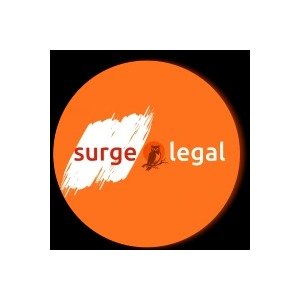Best Housing, Construction & Development Lawyers in Baulkham Hills
Share your needs with us, get contacted by law firms.
Free. Takes 2 min.
Free Guide to Hiring a Real Estate Lawyer
List of the best lawyers in Baulkham Hills, Australia
About Housing, Construction & Development Law in Baulkham Hills, Australia
Located in the Sydney Region of New South Wales, Baulkham Hills over the years has become a hotbed of housing, construction, and development. The laws governing these areas are part of Australia's complex legal system which is a mix of law derived from English common law, federal laws enacted by the Commonwealth, and state legislation. In Baulkham Hills, the regulatory framework touches on contracts, land use planning, labor relations, safety in the workplace, environmental protection, and the containment of urban sprawl.
Why You May Need a Lawyer
Legal assistance is usually sought to navigate the intricacies of rules, permits, contracts, or to resolve disputes related to specific planning permissions, workplace injuries, contractual disputes, environmental violations, and landlord-tenant conflicts. Architects, construction workers, project managers, property developers, or homeowners often need legal expertise to understand and apply the law.
Local Laws Overview
Baulkham Hills comes under the jurisdiction of The Hills Shire Council and the state laws of New South Wales. The key local laws relevant to housing, construction, and development include the Environmental Planning and Assessment Act 1979, Local Government Act 1993, and the Building and Construction Industry Security of Payment Act 1999. These laws legislate on land use, building certificates, construction indemnity, developers' contributions, and payment security, among other matters.
Frequently Asked Questions
What role does the local council play in Housing, Construction, and Development?
The council oversees land zoning, building approvals, environmental impact assessments, and the enforcement of building and planning regulations.
What is a DA and why is it important?
A DA, or Development Application, is required for most developments in Baulkham Hills. It is reviewed by the council to ensure the proposed development aligns with local zoning and building regulations.
What is covered under the Building and Construction Industry Security of Payment Act 1999?
This Act protects contractors, subcontractors, and suppliers in the industry against non-payment, providing a mechanism for recovering payment for the work carried out.
What are developers' contributions?
These are finances provided by a developer to the council to cover the cost of infrastructure required due to the development. The exact contributions required can vary depending on the nature of the project.
Do I need a license to develop/build in Baulkham Hills?
Yes, depending on the nature and size of your project, both the developer and the builders are typically required to be licensed under the relevant NSW legislation.
Additional Resources
Relevant bodies include The Hills Shire Council, NSW Planning and Environment Department, Fair Trading NSW, and NSW Environmental Protection Authority. Resources such as Law Access NSW, Legal Aid NSW, and the Building and Construction Industry Security of Payment Act 1999 Guide provide valuable insights.
Next Steps
If you need legal assistance in the areas of housing, construction, and development, look for a lawyer who specializes in these fields. Reach out to the local council's planning department for guidance on regulatory compliance and applications, and consider consulting resources provided by legal bodies and governmental departments to understand your rights and obligations.
Lawzana helps you find the best lawyers and law firms in Baulkham Hills through a curated and pre-screened list of qualified legal professionals. Our platform offers rankings and detailed profiles of attorneys and law firms, allowing you to compare based on practice areas, including Housing, Construction & Development, experience, and client feedback.
Each profile includes a description of the firm's areas of practice, client reviews, team members and partners, year of establishment, spoken languages, office locations, contact information, social media presence, and any published articles or resources. Most firms on our platform speak English and are experienced in both local and international legal matters.
Get a quote from top-rated law firms in Baulkham Hills, Australia — quickly, securely, and without unnecessary hassle.
Disclaimer:
The information provided on this page is for general informational purposes only and does not constitute legal advice. While we strive to ensure the accuracy and relevance of the content, legal information may change over time, and interpretations of the law can vary. You should always consult with a qualified legal professional for advice specific to your situation.
We disclaim all liability for actions taken or not taken based on the content of this page. If you believe any information is incorrect or outdated, please contact us, and we will review and update it where appropriate.








